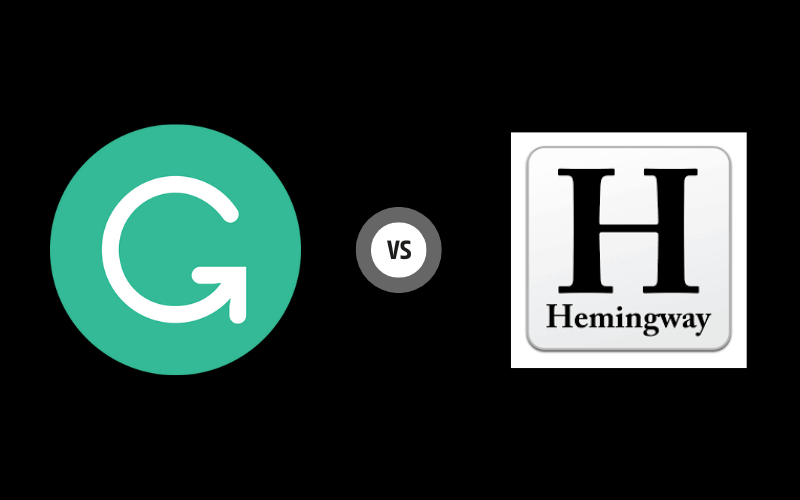Table of Contents
As a dental practice, attracting new patients and maintaining a strong online presence is vital.
A well-executed SEO strategy can help you achieve these goals by increasing your visibility on search engines, drawing more traffic to your website, and ultimately growing your practice.
In this comprehensive guide, we’ll walk you through the essential components of a successful dental SEO strategy.
Introduction to Dental SEO
Dental SEO (Search Engine Optimisation) involves optimising your dental practice’s online presence to rank higher in search engine results pages (SERPs).
The better your SEO, the more likely potential patients will find you when searching for dental services.
Whether you\’re a seasoned dentist or just starting your practice, understanding and implementing effective SEO strategies is key to success.
Understanding the Importance of SEO for Dental Practices
In today’s digital age, most people turn to search engines like Google when looking for dental services.
If your practice doesn’t appear near the top of the search results, you’re missing out on potential patients.
SEO helps ensure that your practice is visible to those who need your services, enhancing your credibility and drawing more traffic to your website.
Conducting a Dental SEO Audit
Before diving into SEO strategies, it’s essential to conduct a thorough audit of your current online presence.
This involves:
Assessing Your Current Online Presence
Evaluate your website, social media profiles, and other online platforms to understand your current SEO standing.
Identifying Technical SEO Issues
Use tools like Google Search Console to identify technical issues such as broken links, slow page speeds, and mobile usability problems.
Analysing Competitor Performance
Look at your competitors’ websites to understand what they’re doing well and identify areas where you can improve.
Keyword Research for Dental Practices
Keyword research is the foundation of any successful SEO strategy.
It involves finding and targeting the terms and phrases potential patients use when searching for dental services.
Finding Relevant Dental Keywords
Use tools like Google Keyword Planner, SEMrush, and Ahrefs to discover keywords relevant to your practice.
Using Keyword Research Tools
These tools provide insights into search volume, competition, and related keywords, helping you choose the most effective terms.
Prioritising High-Value Keywords
Focus on keywords with a high search volume but moderate competition to maximise your chances of ranking well.
On-Page SEO Optimisation
On-page SEO involves optimising the content and structure of your website to make it more appealing to search engines.
Crafting Effective Title Tags and Meta Descriptions
Title tags and meta descriptions are crucial for SEO.
Ensure they are descriptive, include relevant keywords, and entice users to click.
Optimising Dental Practice Website Content
Incorporate keywords naturally into your website content, including service pages, blog posts, and FAQs.
Ensure your content is informative and engaging.
Utilising Header Tags for Better Structure
Use header tags (H1, H2, H3) to organise your content.
This makes it easier for search engines to understand the structure of your page.
Enhancing Image SEO
Optimise images by using descriptive file names, adding alt text, and compressing them for faster load times.
Local SEO for Dentists
Local SEO is critical for dental practices as it helps you attract patients in your geographical area.
Creating and Optimising Your Google My Business Profile
Claim your Google My Business listing and ensure all information is accurate and up-to-date.
Add photos, respond to reviews, and post updates regularly.
Building Local Citations and Listings
Ensure your practice is listed in local directories and online listings such as Yelp, Healthgrades, and local chambers of commerce.
Gathering and Managing Patient Reviews
Encourage satisfied patients to leave positive reviews on Google, Yelp, and other review sites.
Respond to reviews promptly to show you value patient feedback.
Using Local Keywords Effectively
Include local keywords (e.g., “dentist in [city]”) in your website content, meta descriptions, and Google My Business profile to improve local search visibility.
Content Marketing for Dental SEO
Content marketing involves creating valuable content that attracts and engages your target audience.
Developing a Content Calendar
Plan and schedule content in advance to ensure a consistent posting schedule.
Include a mix of blog posts, articles, videos, and social media content.
Creating Valuable Blog Posts and Articles
Write blog posts that address common patient questions and concerns.
This not only improves SEO but also positions you as an expert in your field.
Utilising Video Content and Tutorials
Videos are highly engaging and can boost your SEO.
Create tutorials on dental care, introduce your team, or give a tour of your practice.
Engaging Patients with Social Media Content
Use social media to share content, engage with patients, and build a community around your practice.
Technical SEO for Dental Websites
Technical SEO ensures that your website is easy for search engines to crawl and index.
Improving Website Load Speed
A fast-loading website improves user experience and SEO.
Use tools like Google PageSpeed Insights to identify areas for improvement.
Ensuring Mobile-Friendliness
With more people using mobile devices to search for services, it’s crucial your website is mobile-friendly.
Use responsive design to ensure your site looks good on all devices.
Implementing Secure (HTTPS) Protocols
Security is a ranking factor for Google.
Ensure your website uses HTTPS to protect user data.
Structuring Data for Rich Snippets
Use structured data (schema markup) to help search engines understand your content and enhance your listings with rich snippets.
Link Building Strategies
Earning high-quality backlinks is essential for improving your website’s authority and search rankings.
Earning Backlinks from Authoritative Sites
Reach out to dental industry websites, local news sites, and bloggers to earn backlinks.
Building Relationships with Local Businesses
Partner with local businesses for events or cross-promotions, and ask for backlinks in return.
Guest Blogging for Dental Websites
Write guest posts for reputable dental blogs to earn backlinks and increase your visibility.
Using Press Releases for SEO
Write press releases for newsworthy events and distribute them to online news outlets to earn backlinks.
Monitoring and Measuring SEO Success
Regularly monitoring your SEO efforts is crucial to understanding what’s working and where you need to adjust.
Tracking Key SEO Metrics
Use tools like Google Analytics and SEMrush to track metrics such as organic traffic, bounce rate, and conversion rate.
Using Analytics Tools to Measure Performance
Analyse data to understand which pages and keywords are performing well and identify areas for improvement.
Adjusting Strategies Based on Data Insights
Use the insights gained from analytics to refine your SEO strategy and improve results.
Keeping Up with SEO Trends and Updates
SEO is constantly evolving, so it’s important to stay informed about the latest trends and updates.
Staying Informed About Algorithm Changes
Follow SEO blogs, forums, and news sites to stay updated on changes to search engine algorithms.
Adapting to New SEO Best Practices
Regularly update your SEO strategies to align with current best practices and industry standards.
Continuing Education and Professional Development
Consider attending SEO webinars, workshops, and courses to deepen your knowledge and skills.
Conclusion and Next Steps for Dental SEO Success
Implementing a comprehensive SEO strategy is crucial for the success of your dental practice.
By following the steps outlined in this guide, you can improve your online visibility, attract more patients, and grow your practice.
Remember, SEO is an ongoing process that requires regular attention and adjustment.
Ready to take your dental practice to the next level?
Start implementing these SEO strategies today and watch your online presence soar!
FAQs on Dental SEO Strategy
Why is SEO important for dental practices?
SEO helps dental practices attract more patients by improving their visibility on search engines.
How can I find the best keywords for my dental practice?
Use tools like Google Keyword Planner, SEMrush, and Ahrefs to find relevant keywords with high search volume and moderate competition.
What are the key elements of on-page SEO for dentists?
Key elements include optimising title tags and meta descriptions, incorporating keywords into content, using header tags, and enhancing image SEO.
How does local SEO benefit dental practices?
Local SEO helps attract patients in your geographical area by improving your visibility in local search results.
What types of content should dental practices create?
Create blog posts, videos, tutorials, and social media content that address patient questions and concerns.
How can I improve my dental website’s technical SEO?
Improve website load speed, ensure mobile-friendliness, use HTTPS protocols, and implement structured data for rich snippets.
What are the best link-building strategies for dentists?
Earn backlinks from authoritative sites, build relationships with local businesses, guest blog for dental websites, and use press releases.
How do I monitor the success of my dental SEO efforts?
Track key metrics using tools like Google Analytics and SEMrush, and adjust your strategies based on data insights.
What should I do if my SEO rankings drop?
Conduct an SEO audit to identify issues, update your strategies, and stay informed about algorithm changes.
How can I stay updated on the latest SEO trends?
Follow SEO blogs, attend webinars and workshops, and engage in continuous education and professional development.
Need help with your dental SEO strategy?
Contact us at KeepWriting.co for expert advice and tailored solutions to boost your online presence.
Let’s work together to grow your practice!
Author
-

Since 2017, Alistair has been immersed in the digital marketing world. His experience spans across leading brands like IG Group, Russell Investments, Tech.co, and Website Builder Expert, among others. Alistair decided that it's time to give back by building the soon to be largest digital marketing agency in the UK -> OKETTI. In his spare time, Al enjoys reading history, bouldering, and spending time with his family. Alistair aims to connect curious online minds with insights from experts, making a global impact. However, the experts we hire never describe themselves as experts because we know that there is always more one can learn.
View all posts


